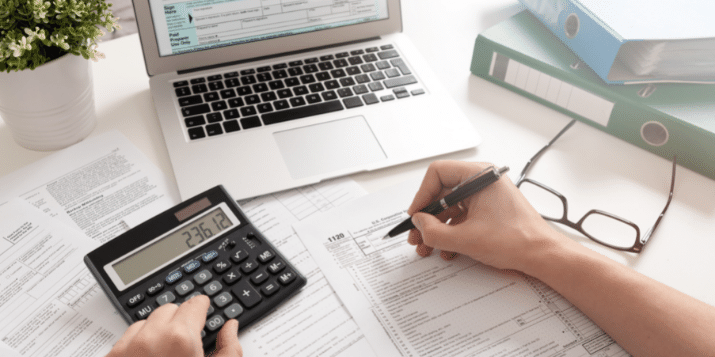
The Impact of Australia's Cryptocurrency Tax on Cryptocurrencies
Cryptocurrencies such as Bitcoin (BTC) , Ether, and others have been steadily gaining interest in the finance industry. As a result, Australia has seen a rise of over 200% in the number of people who hold cryptocurrency accounts. It is why it's essential for those that own cryptocurrencies to be aware of how taxes apply to them and their assets, given that these digital currencies are now considered an asset by law.
Let’s find out here at The Top Coins how taxes affect the crypto trading industry in Australia.
What Is a Cryptocurrency, and How Does it Work?
The crypto revolution is in full swing, and there are now over 1,600 different cryptocurrencies on the market. But two have remained at the top of their game. Bitcoin has been leading this movement since its inception. Ethereum currency took off early with smart contracts making it possible for people all over to trade without third-party interference or restrictions on payment methods.
Exchanges are platforms that allow you to trade digital currencies. Decentralised cryptocurrency exchanges work in a decentralised manner without the involvement of a third party, allowing users to make direct transactions. Users can use P2P transactions with decentralized cryptocurrency exchanges. This technique is made possible by smart contracts. All decentralized exchanges, however, do not have the same infrastructure.
If cryptocurrencies are decentralised, how come there's an Australian tax on crypto?
Australian Tax and Cryptocurrency
The Australian Tax Office (ATO) has recently announced that it is ramping up its bitcoin earnings and trading regulation. Therefore, we need to consider the impact of tax on crypto Australia in trading and investing. Also, we must consider the development in popularity of Bitcoin and other cryptocurrencies as a financial investment opportunity.

According to the Australian Taxation Office, there are between 500,000 and a million Australians who own cryptocurrency. To verify the numbers further, the ATO began gathering data in late 2019 to ensure that individuals, including those who trade cryptocurrencies, pay their taxes correctly.
In addition, the office has collected records on brokerage services and payment facilitators from Australian cryptocurrency designated service providers (DSPs). ATM providers and cryptocurrency exchanges are other types of DSPs that exist.
The Impact of Cryptocurrency Tax on Australian Investors
For Personal Use
Personal use assets are not subject to CGT if their value is less than $10,000. If you have less than $10,000 in cryptocurrency and use it mostly to buy items and services, the ATO will accept it as a personal usage asset. You're not aiming to make money when you keep digital currency.
For Buying Goods
Crypto is the future of commerce. Despite this, it may be difficult for those who use crypto to capitalise on their gains and avoid taxation as they purchase items with cryptocurrency. However, the total should not exceed $10,000. Personal use exemption does not apply if the cost basis exceeds $10,000. Personal capital gains are taxed as usual. However, the basis for taxation is your capital gains tax on cryptocurrency Australia.
For Businesses and Enterprises
If you are a business and receive payment in the form of cryptocurrency for goods or services, then it's necessary to record that value partway through your income tax return. T he value in Australian dollars will be the market price of cryptocurrency on that day and can either come from an exchange, or it might just reflect how much a Bitcoin is worth at any given time.
When you buy company items using cryptocurrency (including trading stock), you need to pay tax on crypto Australia based on the market value of the item purchased. Still, there may be capital gains tax issues if you trade bitcoin for business purposes.
For Investments
If you're considering investing in cryptocurrency , keep these fundamentals of trading stocks and shares in mind. You'll be considered an investor if your purchase is made to hold with the intention for long-term gains- just like any other common stock trader or shareholder.
If you buy and sell cryptocurrencies for a profit, you will have a capital gain if the price goes up after you sell it, and you will have a capital loss if the price drops. If you're a resident of Australia and have kept the cryptocurrency for more than a year, you may be eligible for a 50% crypto capital gains tax Australia discount.
The ATO may consider you to be a cryptocurrency trader if the purpose of your investment is solely invested in buying and selling cryptocurrencies for short-term gains rather than long-term growth. In this situation, any profits would be taxed as taxable income, and the 50% CGT discount would not apply.
For Crypto Transactions and Trading
A trade of one cryptocurrency for another would be considered a taxable event. In the eyes of the ATO, this is viewed as two separate transactions. The first transaction would be the sale of your initial cryptocurrency, and then you could purchase another one with this money. If you are fortunate enough to gain or dispose of any cryptocurrency, then be aware that this will fall under the capital gains tax on cryptocurrency Australia.
The Australian Tax Office (ATO) may consider cryptocurrency miners to be engaged in business. If this is the case, any proceeds gained from mining activities will be treated as assessable income, and expenses incurred while operating a mine can also count against your revenue for said industry-related work.
The ATO has issued new guidelines on properly reporting cryptocurrency airdrops , and you must know your tax obligations before accepting any of these free coins.
The figures supplied will be used to calculate the cost basis for the airdrops. For example, you receive 1,000 coins from a new cryptocurrency startup that has only recently begun operation. Then, on the following day, this cryptocurrency was valued at $0.10 per coin. Therefore, you need to include $100 as part of your regular income.
What Information Does the ATO Have About Your Crypto Transactions?
To have a glimpse of Australian tax laws on cryptocurrency, here’s what you need to know. The ATO collects data through the following records:
- Name, address, date of birth, phone number, email address, date of birth, and account information of the digital currency owner.
- Account information includes account status (open, lost, or suspended), presently connected bank accounts, wallet address, unique identifier, and transaction date and time.
The data collection process entails that all cryptocurrency transactions you make leave an electronic record. The DSP uses this in compliance with Australian taxation guidelines to ensure tax revenue goes where it should - straight back into our government.

According to the ATO, Bitcoin and other cryptocurrencies are not considered Australian or foreign cash. They are also not considered money. These digital currencies, on the other hand, are regarded as property. Cryptocurrencies are assets for CGT purposes. Hence, the Australian crypto tax as per CG T purposes will apply once you:
- Purchase a cryptocurrency.
- As a present, send a cryptocurrency.
- Exchange one cryptocurrency for another fiat or cryptocurrency.
- Convert to fiat currency (for example, Australian dollars).
- Purchase goods and services
To understand the Australian cryptocurrency tax , you must know your classification under Australian law. For example, you can either be taxed as an individual or a business (professional). It's important because this will determine how much tax liability there is for someone engaging with cryptocurrency transactions in Australia today.
You are treated as an investor if your primary aim or activity is to buy and sell Bitcoin or other cryptocurrencies. You're primarily investing for yourself, which implies capital gains, airdrops, and forks will provide your income. Therefore, understand that the Australian tax on crypto will be implemented.
On the other hand, you are regarded as a trader or business (also known as a professional) who engages in a more significant transaction. The primary goal is to profit from a cryptocurrency exchange. Thus, the ATO will implement t he Australian tax on crypto if you buy and sell to generate profits. Trading isn't simply about how often and how much you trade. Even if you only trade cryptocurrencies several times a week, you can still be a trader.
Final Thoughts
In the end, it's essential to keep in mind that cryptocurrency is a new and evolving field. With this newfound status comes some uncertainty and challenges for those who want to comply with international laws.
However, understanding the tax process on crypto in Australia can help you make smart financial decisions on your crypto holdings today and into the future.





Leave a Reply
51 comments
Add comment ×